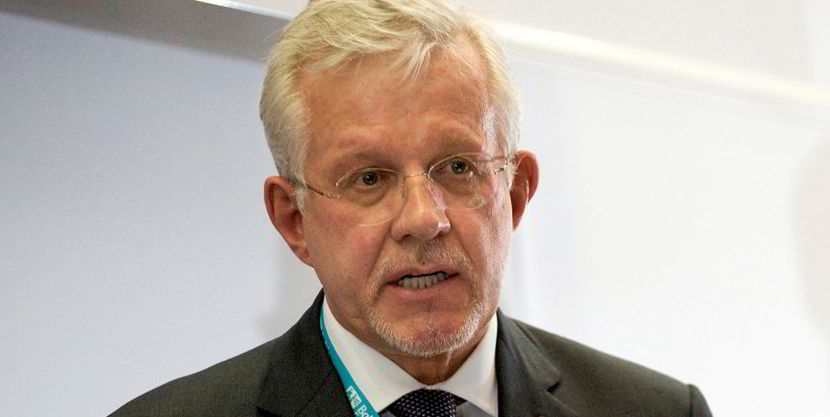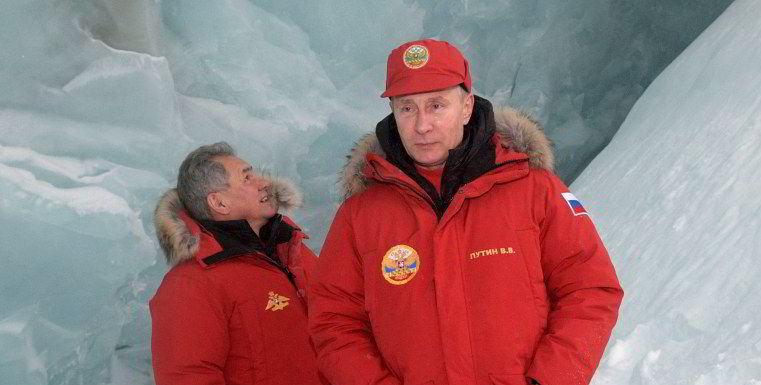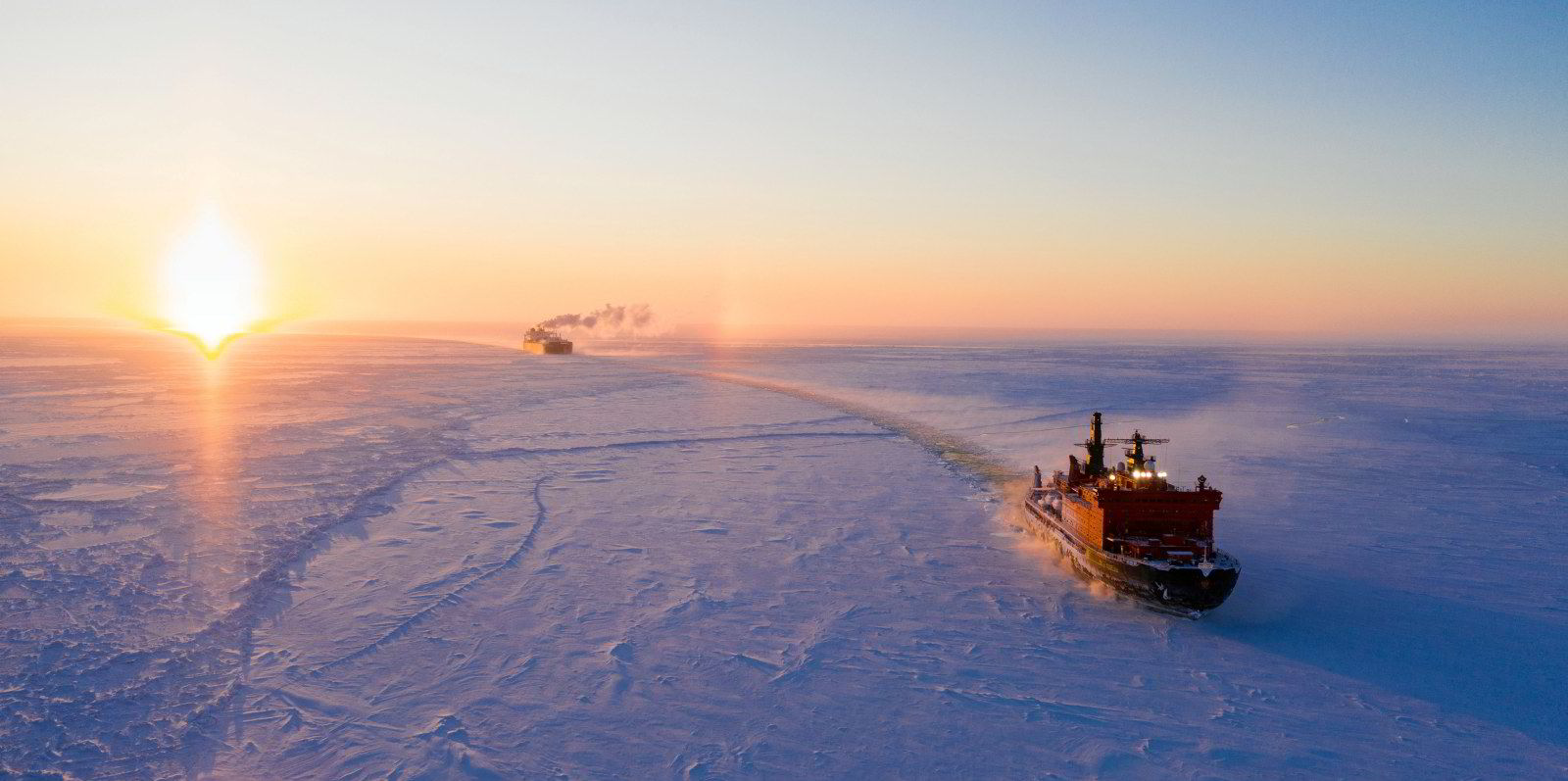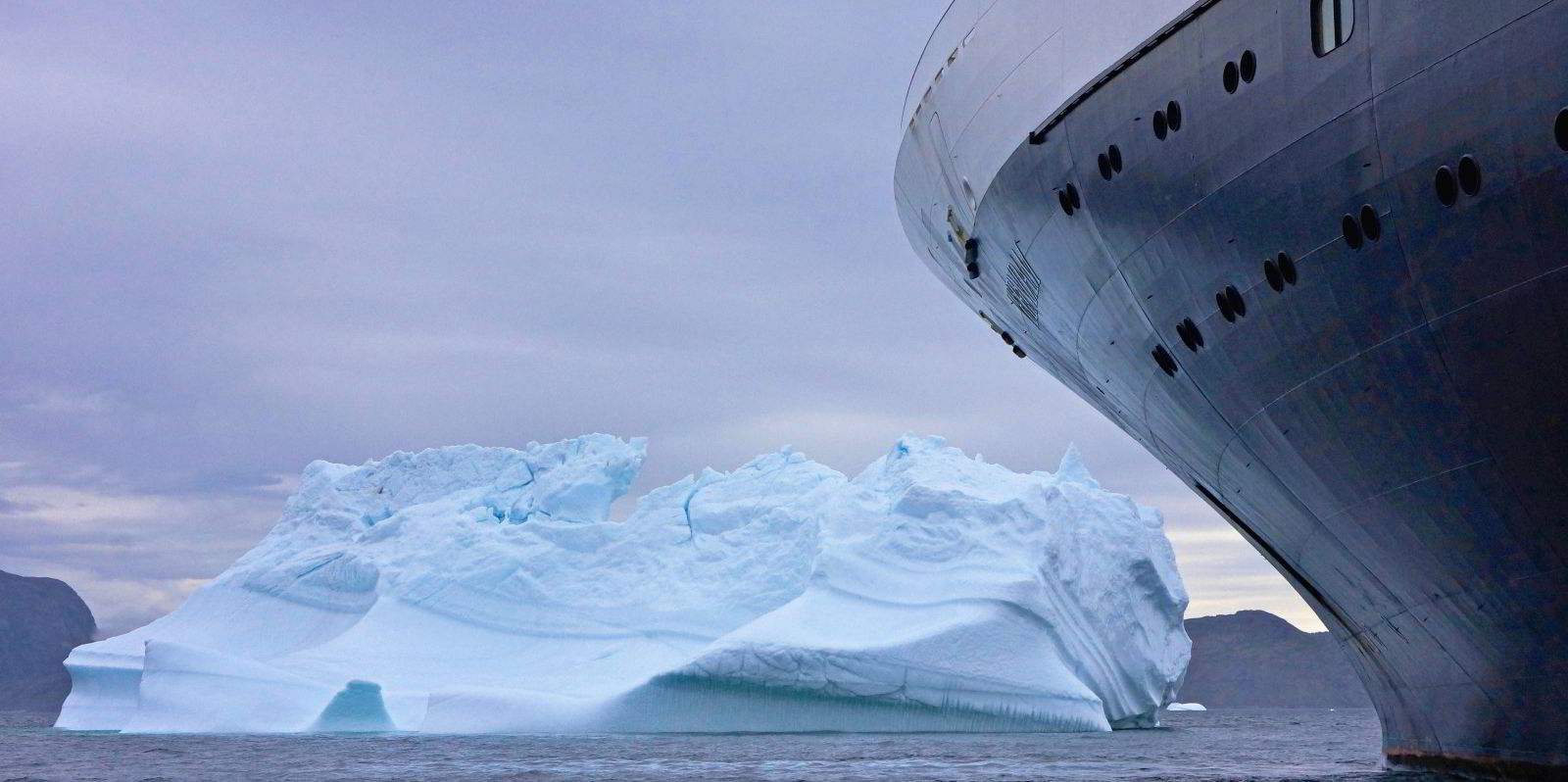A struggle over the future of the Arctic will intensify next week when Russia takes the leadership of two Arctic councils.
Global shipping is split over the wisdom of maritime trade in the region, but Moscow seems to be an evangelist for expansion.
Evgeniy Ambrosov, director of marine operations at Russian gas producer Novatek, has been made chairman of the Arctic Economic Council from 19 May.
He told my colleague Lucy Hine that he had heard no reasonable ecological or economic argument for not using the Northern Sea Route (NSR) — the maritime passage north of Siberia that can link China with Europe without going via the Suez Canal.
Global warming is causing the Arctic sea ice to shrink, making it increasingly easy for ships to traverse the Far North.
Cruiseship operators, such as Swan Hellenic, are keen to expand operations in the area by building specialist vessels.
Bulk ship operators including Golden Ocean Group, Nordic Bulk Carriers and Oldendorff Carriers are similarly eager.
Rosatom, the Russian state-owned company that operates nuclear ice-breakers, envisages the NSR being open for year-round trade as early as 2024.
The second-lowest levels of Arctic Ocean sea ice on record were logged in 2020 amid temperatures that reached 38C in June.
More journeys are being made through the NSR — a policy encouraged by Russian President Vladimir Putin.
The Kremlin has posted video footage of three of its nuclear submarines bursting through the Arctic ice simultaneously, for what it boasts is the first time in history. This was part of Exercise Umka-21 involving fighter jets, torpedo shootings and Arctic Brigade soldiers in Franz Josef Land, 900 km (560 miles) from the North Pole, according to the Barents Observer website.
At the same time, Britain and Norway conducted joint naval operations in the Far North with the frigates HMS Lancaster and KNM Thor Heyerdahl.
The increasing use of military vessels in the region is part of a new Cold War between Russia and the West — fuelled by interest in oil, gas and precious metals there
The future of the Arctic has layers of complications, including the fact that national boundaries in the area are unclear and contested.
Legal, military, industrial and maritime issues have been bubbling along for some time: indeed, I wrote an ebook in 2012 titled Polar Opposites: Opportunities and Threats to the Arctic.
The increasing use of military vessels in the region is part of a new Cold War between Russia and the West — fuelled by interest in oil, gas and precious metals there.
China has increasingly signalled its interest in the Arctic, with state-owned Cosco experimenting with taking LNG carriers through the NSR.
Last summer, Beijing sent the 12,769-gt, 122-metre ice-breaker and research vessel Xue Long 2 (built 2019) on its first expedition there.
China has just ordered its first heavy ice-breaker to be built and has made attempts to buy mines and bases in Greenland. Former US president Donald Trump even offered to buy the Danish territory outright. Unsurprisingly, this was turned down.
Most opponents of Arctic shipping and wider industrialisation are driven by environmental rather than military or political concerns.

Critics point out that the Arctic is one of the last pristine places left on earth, with a range of special and endangered species. They also argue that the melting of the ice caps and the rising global sea levels it causes represent the ultimate symbol of a climate crisis.
The International Maritime Organization has banned most use of heavy fuel oils there — but not until the summer of 2024. Environmentalists say this is not soon enough and there are too many exemptions in the regulations.
Liner operators CMA CGM, Hapag-Lloyd and Mediterranean Shipping Co have come out firmly against Arctic shipping, citing the problems of black carbon emissions and the potential for accidents that threaten a fragile ecosystem. They are aware the public is uneasy about exploiting the region.
But, Ambrosov argues, Arctic shipping offers a quick East-West route and, therefore, saves CO2 and is good for the environment. He also warns that northern populations need economic development to prosper.
I believe opening up the Far North at this time encourages people to think the climate crisis is not serious. Instead, rather than a gold rush, we need an international treaty to safeguard the area, like the one that covers Antarctica.
I am banking on Ambrosov safeguarding the low-lying island nations that face extinction from higher sea levels, rather than encouraging any short-term shipping gains.






